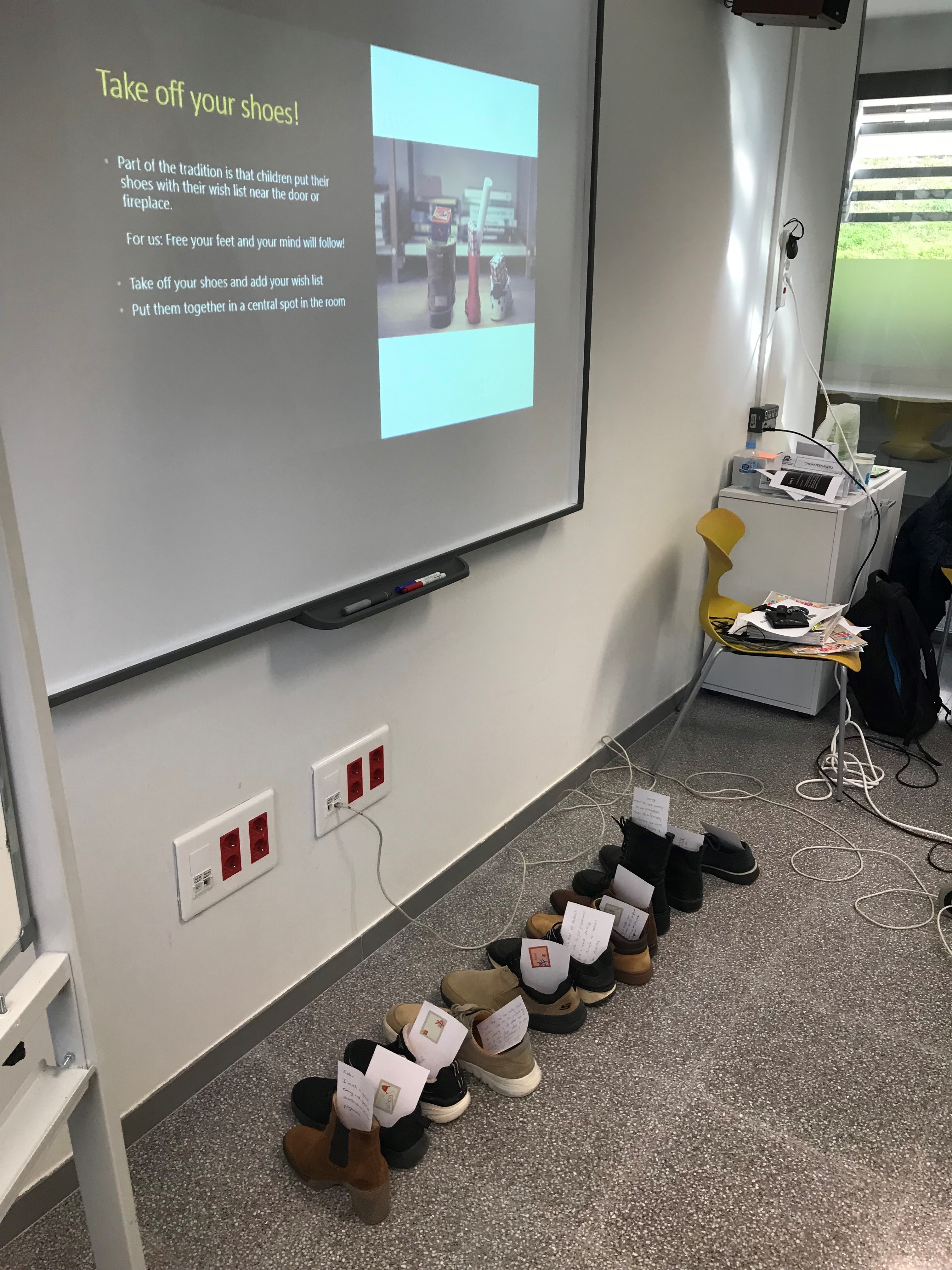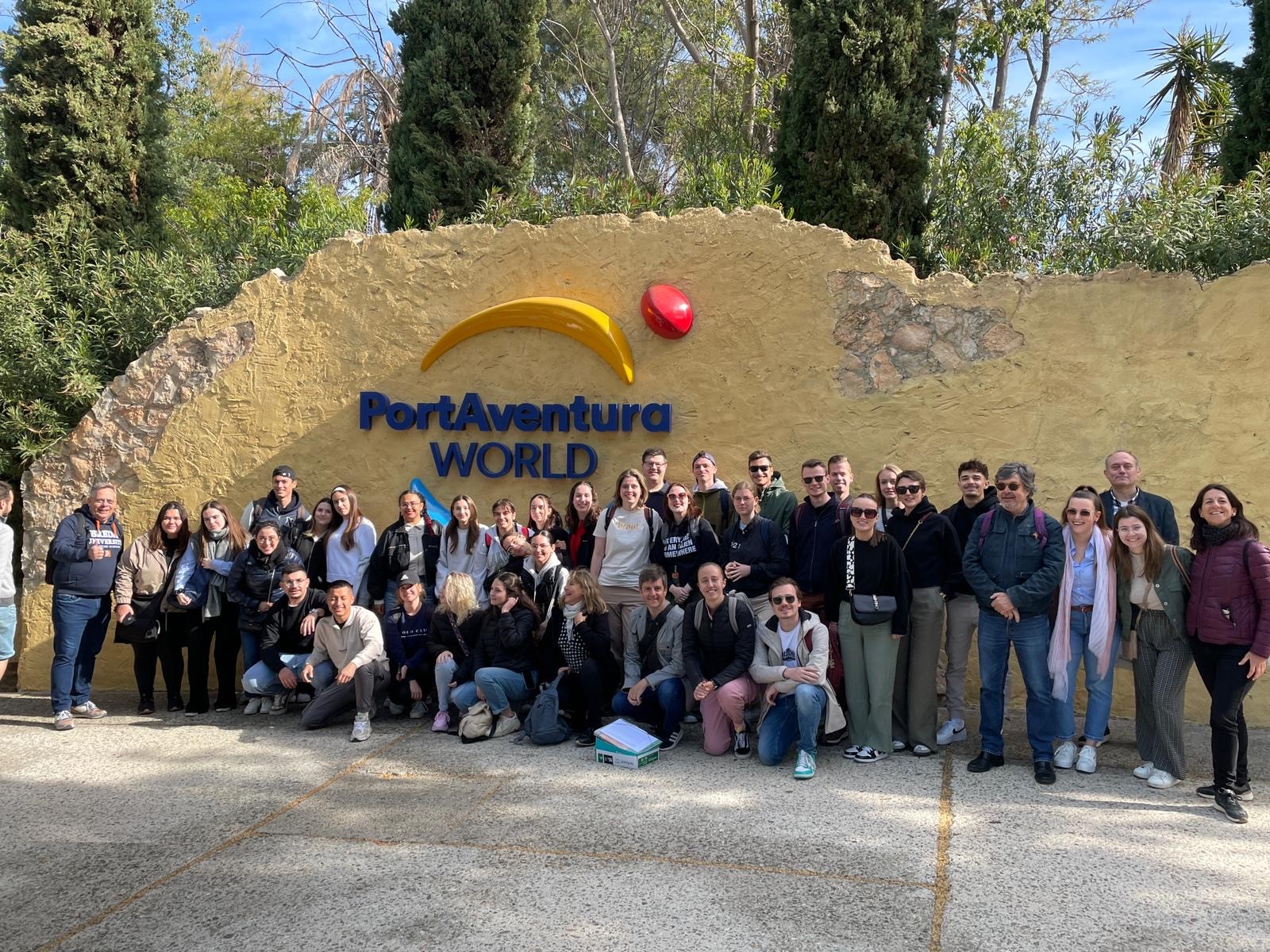A rollercoaster process of genuine mutual value creation
Mastering the development of the international IDEAS master’s

For several years, Breda University of Applied Sciences (BUas) has been involved in the development of an international master's programme in the field of attractions and theme parks management. Together with Universitat Rovira I Virgili (URV) in Spain as a steadfast partner, efforts have been underway for several years now to establish such a programme, with quite some milestones having been reached already. While several other partners have both joined and departed along the way, the entire process has brought forth many valuable and precious outcomes going beyond the development of a master’s programme alone. In that sense, the development process of this master’s programme is a textbook example of how international academic cooperation can lead to genuine mutual value creation.
Klaus Hoven and Wim Strijbosch are lecturers and researchers at Academy for Leisure & Events in the BUas-wide Attractions and Theme Parks Management track.
IDEAS
The efforts of developing this international master's programme have resulted in the IDEAS master’s: Innovative Design for themed Entertainment and Attractions for Sustainability. IDEAS aims to be a master’s programme in the fields of tourism, hospitality, entertainment, leisure, sustainability, and international business management that educates students towards senior and executive-level management positions in the themed entertainment and attractions industry. Characteristic of this programme is the development of profound knowledge of dealing with sustainability in attractions and theme parks, focusing on a broader perspective on sustainability than just the environmental one. In the programme, three areas of application have been identified (corporate strategy, business management and creative leadership) with sustainability principles being embedded throughout.
A bit of history
The idea for a master’s programme in attractions and theme parks management emerged at the IAAPA Europe Expo in Amsterdam, where several educators met during a round-table session (IAAPA is the International Association for Amusement Parks and Attractions). During this meeting, many bachelor’s programmes or training courses were identified across European higher education institutes. IAAPA and attending industry partners expressed their wish for a master’s programme. After this meeting, Salvador Anton Clavé from Universitat Rovira I Virgili (URV) from Spain and Klaus Hoven (BUas) developed a first draft curriculum. Seizing the potential of setting up this master’s as an Erasmus Mundus Joint Master’s (EMJM), requiring three European universities to develop a joint master’s programme, they began searching for a third academic partner, finding Universität Duisburg-Essen (UDE) from Germany. While this collaboration led to a high-quality proposal nearing completion, UDE eventually withdrew due to university-wide strategic considerations. With great understanding and respect for this decision, it did not affect the very positive relationship between BUas, URV and UDE that had been established along the way. Yet, for the further development of a master’s programme in attractions and theme parks management, this meant that we had to temporarily hang up our hats.
The proposal got a score genuinely exceeding our wildest dreams.
EMDM
Luckily, in 2021, the Erasmus Mundus action of the European Commission launched the Erasmus Mundus Design Measures (EMDM) programme, offering higher education institutes a lump sum of €55,000 to facilitate the set-up of new international partnerships with the goal to develop new, innovative and highly integrated master’s programmes. The launch of this funding programme provided an impetus to both URV and BUas to pick up where we left off, and to proceed with the development of the master’s programme by looking for another third partner. Forces from Spain and the Netherlands were joined again, leading to the development of a proposal for submission under this EMDM call. Later, Université Côte d'Azur (UCA) in France joined these efforts to deliver a high-quality proposal. As a result, the first concrete notion of the IDEAS master’s programme was born. The resulting proposal was submitted in February 2023. With patience, we waited for five months until in August 2023 we received highly positive news: the proposal was evaluated with 97 out of 100 points, a score genuinely exceeding our wildest dreams.
Towards a European accreditation
Being awarded with the EMDM funding provided us with the means to finally meet in person. Notably, the entire EMDM proposal was prepared through online meetings alone. At the end of November 2023, the first kick-off meeting was held at the Faculty of Tourism and Geography of URV in Vila-seca (Spain). These initial days were incredibly productive. To stimulate creativity in discussing the student profile, learning outcomes and curriculum, Klaus hosted a creative workshop themed after a long-standing tradition uniting Spain and the Netherlands: Sinterklaas. It must have been a strange experience for our Spanish and French colleagues to find a present in their shoes they took off earlier at Klaus’ request. This ice-breaking activity led to several valuable ideas that have remained in the programme ever since.

Various meetings followed in both Breda and Nice. We were also hosted by IAAPA Europe in Brussels for an industry meeting with several attraction and theme park industry representatives, further highlighting the industry’s strong support for the development of the master’s programme. This meeting brought together industry experts from across Europe, demonstrating the international integration of the master’s programme developments throughout the continent.
Eventually, these efforts resulted in a self-evaluation report and draft consortium agreement that were ready to be accredited by the appropriate institutions. The accreditation procedure followed the European approach: a first for Catalan accreditation agency AQU. Involving the Dutch and French accreditation agencies of NVAO and HCERES as well, we collaborated on setting up this approach in a way that honoured the accreditation standards of all three institutes (AQU, NVAO and HCERES). While giving several points of improvement, the panel commended the high quality and profoundness of both the programme and of the documents. The programme was therefore officially accredited and was ready to be transformed into a fully accredited proposal to be submitted for an Erasmus Mundus Joint Master’s call.
BIP
Despite the success of these efforts, strategic, university-wide considerations prompted UCA to not continue with the further development of the master’s programme, and consequently withdraw from the project. At the time of writing this article, we (URV and BUas) are therefore exploring collaborations with other universities to replace UCA as a third partner in rounding off the development of the master’s programme. Luckily, the decision to withdraw from the development of the master’s programme did not affect the positive relationship between the three universities. In fact, BUas even followed up with both URV and UCA by setting up a European Commission-funded Blended Intensive Programme (BIP), which took place in late April 2024.
The efforts have resulted in the IDEAS master’s: Innovative Design for themed Entertainment and Attractions for Sustainability.
During this BIP, 33 students from URV, UCA and BUas were hosted at URV. After several online preparation sessions, within five intensive days, students set up and conducted a GPS study in PortAventura World, a major European theme park destination neighbouring URV’s Faculty of Tourism and Geography. The study was set up, executed and reported on to PortAventura World’s higher management within this very short timeframe. In just these few days, students demonstrated remarkable collaboration and dedication, showcasing their ability to excel in real-world settings, leaving promising expectations for what they will be able to do in the context of an international attractions and theme parks management master's indeed.
Conclusion
The journey to establishing the IDEAS master’s stands as a testament to the potency of international collaboration and resilience. From inception to successful accreditation and proposal evaluations, every step has been marked by dedication, innovation and shared commitment. This process has generated significant value, yielding a robust network of both academic and professional expertise and elevating educational standards in attractions and theme parks, benefiting the mutual development of knowledge, skills and expertise to together lift the state-of-the-art to a higher level.
Through this journey, we have learned valuable lessons about the importance of flexibility, open communication and mutual trust and support. These lessons, alongside the established collaborative framework, will guide future endeavours in both the IDEAS master’s process and spin-off projects like the BIP. With unwavering enthusiasm, we eagerly anticipate the continued development of an IDEAS master’s proposal for upcoming EMJM calls, contributing to a lasting impact on the global field of attractions and theme parks. None of this would have been possible without the invaluable support of our partners, who by now have become true friends as well.




































































